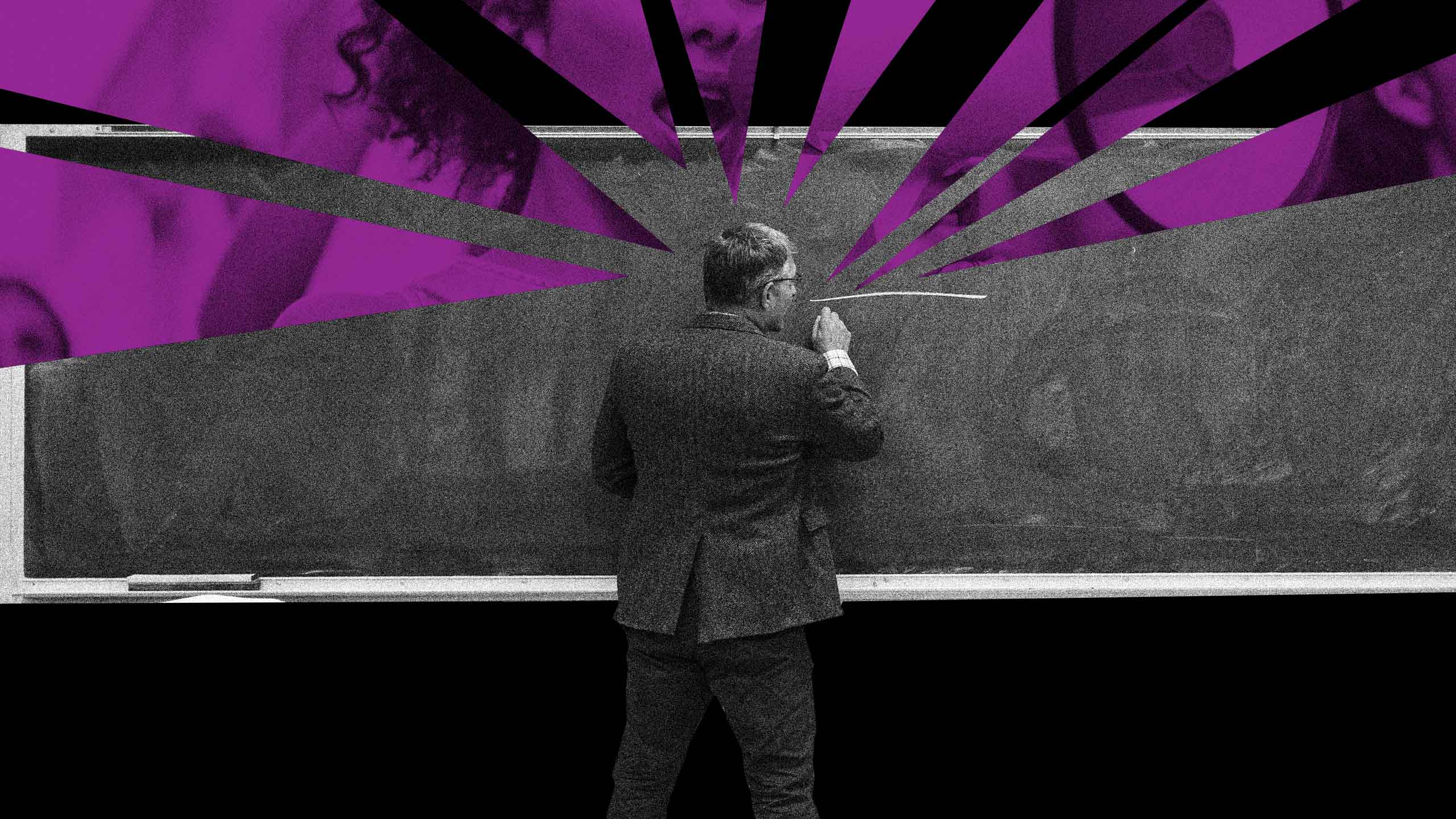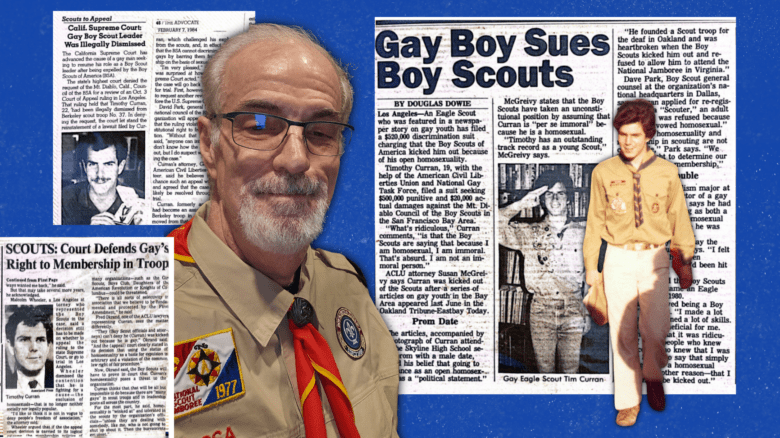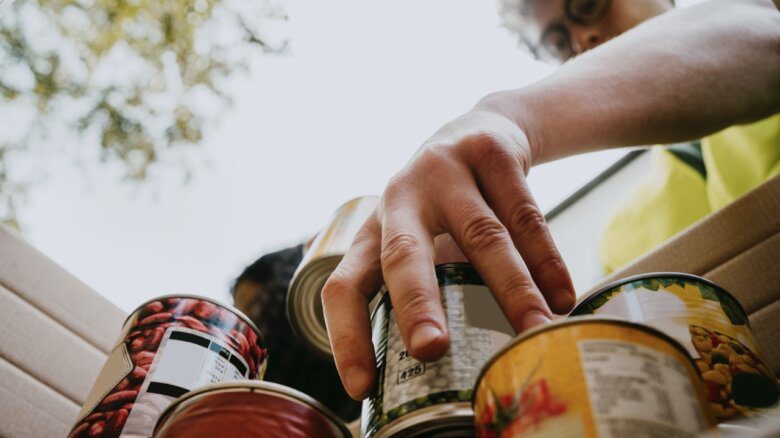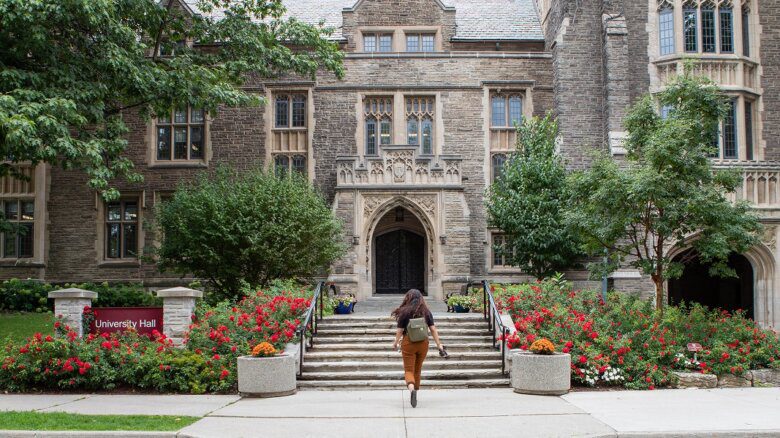Students and teachers in New Brunswick can breathe a sigh of relief. The incoming Liberal government has promised to turf the outgoing Conservatives’ interventions into K-12 education, restoring protections for trans and gender-diverse students. They’ll also stop the process of dissolving the Anglophone East School Board, which refused to go along with Conservative policies.
But fear lingers in places like Saskatchewan and Alberta, where right-wing provincial governments continue to disregard research and instead impose ideologically driven anti-trans policies grounded in what they refer to as “parental rights.” New Brunswick Conservatives also claimed to be responding to “hundreds” of parental complaints, until an access to information request revealed there actually were none.
“Parental rights” has become a political buzzword, and right-wing politicians in Canada are amplifying it and putting it squarely in the centre of political debate. How are educators to respond to the politicization of their work? And how should they respond to political attacks on the policies they’ve spent years developing?
Natalie Kouri-Towe is associate professor at the Simone de Beauvoir Institute at Concordia University in Montreal. When it comes to understanding the parental rights movement, she distinguishes two driving forces and believes they each call for distinct responses. There are, on the one hand, people organizing with explicitly hateful, homophobic and transphobic viewpoints and language. But there are also those simply acting out of misinformed attitudes of concern for parents and children. The latter “doesn’t require an anti-hate response, it requires education and bridge-building. And it requires us to look carefully at what’s happening in our education systems.”
Cuts to education funding across all provinces are part of what’s fuelled the crisis, she says, undermining the ability of teachers to respond to the needs of students and parents, and making it harder for teachers to form substantive connections with parents and diverse communities. As parents struggle with racism and other forms of inequity, and migrant and newcomer families are infantilized by the way they’re treated under government policies, this is exploited by right-wing agitators who claim they’re about to lose one of the remaining aspects of their identity: parental authority, she says.
“When a community is already alienated from generic public schools because of racism and anti-immigrant bias, and these things that are unfortunately part of the mainstream Canadian social fabric at this time, we’re not going to have a lot of resources to reach out to and communicate with and build bridges with communities when these kinds of conflicts get racialized around gender and sexual diversity,” explains Lee Airton, an education professor at Queen’s University in Kingston, Ontario. It’s no coincidence, they say, that right-wing groups like 1 Million March 4 Children have specifically targeted immigrant and newcomer communities for recruitment.
There’s a problem with Canadian education, Kouri-Towe and Airton say. Part of it boils down to a lack of diversity in school staff, where some demographics—white people of European heritage, for instance—are vastly overrepresented. According to 2016 StatCan data, 30 percent of Ontarians identify as a visible minority, while Ontario College of Teachers surveys reveal that over 90 percent of Ontario teachers identify as white. That sets up an imbalance that is exacerbated by the difficulty educators face in explaining the importance of gender and sexuality education.
Airton says school administrators by and large understand the gender-inclusive policies necessary to support gender-diverse students, for instance the respect for pronouns and names. But communicating these policies to parents is where the difficulty often arises.
“They know what to do—but I don’t think they know why,” says Airton. “They don’t always know how to argue for it in a way that welcomes everyone into the conversation.”
“I think we often come back to ‘This is Canadian. It’s a Canadian value. This is Canada. It’s important.’ And if you are the person saying ‘This is Canada’ or ‘This is Canadian’ to someone else, you are producing them as not Canadian. And I think that’s where some of these conversations can go off the rails,” they say.
In Airton’s work as an education professor training future teachers, they try to prepare those teachers for difficult questions from parents and community members. They say the most important thing teachers can do in communicating with parents is to draw parallels between supports for LGBTQ2S+ students and supports for other students, for instance, students with disabilities or students from particular faith or cultural communities. But that presumes schools have actually been providing those kinds of supports for diverse groups of parents and students.
“If you don’t already have that connection, that sense of listening and collaborating in those areas, you’re not suddenly going to be able to do that about gender and sexual diversity.”
“I don’t think a lot of schools necessarily have built those bridges that they can now stand on in this conflict.”
Teachers say they need more support, education
Leila Goldman has taught at schools in both rural and urban parts of Newfoundland for over a decade. She isn’t convinced that the education profession—at least in her province—actually does know how to support gender-diverse children. She says even when SOGI topics are present in the curriculum, many teachers still feel uncomfortable and avoid it.
“I would say schools know what they’ve been instructed to do—to put up this poster or agree to use that pronoun for that student if they want. But I don’t agree that administrations and teachers in schools really know that this is what has to be done, and stand behind it. I hear a lot of discussions even about things as simple as pronouns,” she says.
Patrick Upton—who’s taught at the junior high level in St. John’s, Newfoundland– agrees. Upton and Goldman (who are both using pseudonyms in order to protect their privacy) remember only one professional development session on LGBTQ2S+ topics in the past decade of teaching, one that Goldman says was delivered by two straight cis people and was “heavily flawed.”
A lot of the educational efforts that do exist are teacher-generated, they say. A couple of years ago, Upton had a junior high student who was trying out different names as part of their transition. This annoyed other teachers, he says, so Upton and a colleague put together a presentation they gave to school staff, explaining how to support students in their transition, and why it’s important.
“I was just trying to be the voice of reason, saying ‘Give it a try, it might be hard to keep up, but write the name on a sticky note, do what you have to do,” he says.
Goldman frequently puts together resources and notes for other teachers on SOGI-related topics, but then often gets asked to take over teaching the topics instead. Teachers also prefer to invite external presenters and professionals, she says, since external experts are less likely to be challenged by critical students or parents.
“It’s an incredible amount of work, but that work—in addition to the fear—is one of the reasons teachers aren’t as invested in it as much as they should,” she says. “It gets neglected for fear of backlash, and because of all the investment that’s required at a time when teachers are already so stressed out.
“They’re afraid, and they’re unprepared. That’s a fault of us as a society, it’s a fault of the preparation programs, it’s a fault of the departments that developed the resources and lack of ongoing professional development.”
Goldman thinks part of the problem is that parents lack the education their children are receiving. She says there’s a need for a comprehensive program for parental education and support throughout children’s developmental stages, to bridge the gap when students are taught things their parents haven’t been exposed to. The only parenting training most parents receive in our society is birth classes, she says, and that’s inadequate.
“So many parents express to me that they feel in over their heads, they don’t know what to do … a lot are just running off instinct from their own childhood and trying to do better.
“There is a small group of loud bigots, and then a much larger group of parents who are just misinformed and struggling and scared.”
Upton has only had one experience with a parent who requested that their children be removed from any discussion of gender diversity. This was communicated to the children’s teachers via a memo from school administration. Upton—who taught one of the children French—challenged the memo. He told his principal it was impossible to teach a language like French without having a frank discussion about pronouns. He ignored the memo and continued teaching the class as he saw fit, but says he didn’t feel supported by school administration on the matter.
Parental requests to have their children excluded from certain topic areas is uncharted territory, says Airton, who’s currently researching the prevalence and impact of these requests. Third-party conservative groups are now producing exemption request forms for parents, they explain, and schools don’t know how to respond to them. Some accept them, some don’t. But the notion that subjects are taught in individualized components and parents can pick and choose what their child is taught reflects a broader misunderstanding of how education works, they say. Curriculum documents just stipulate the point by which something must be introduced; teachers are free to introduce concepts at any time and in any context they feel appropriate, from kindergarten onward. Given today’s growing variety of genders and pronouns among students, teachers and parents alike, teachers have little choice but to introduce the concepts at an early stage. Teachers have immense professional discretion in Canada, Airton points out, and their judgment trumps curriculum documents.
Upton, who teaches both French and math, encounters that in his work. Math textbooks are still riddled with math problems such as: “In a classroom of 40 students, if 25 are boys, how many are girls?” These days, he says, non-binary students will often challenge such language, and if that doesn’t happen, Upton uses the flawed question as an opportunity to talk about gender diversity.
“I don’t think the movement that is arraying itself against all-inclusive sexual diversity and gender in school is only concerned with whether children learn about these things,” says Airton. Airton says it’s a case of the far right using a “commonsensical folksy idea” about the importance of parents in a child’s life “as a way to dress up a whole host of quite far right-wing policies and values.”
While teachers struggle to navigate these issues, right-wing harassment directed at schools has an even more direct impact on trans and gender-diverse teachers.
barbara findlay is a member of Lawyers Against Transphobia, a collective of lawyers and justice workers formed in late 2023 in response to the current wave of transphobia rolling across the country.
“Trans teachers are being individually targeted, particularly online,” findlay says. She describes the case of one client who was harassed by the mother of a child in their school who wasn’t even taught by that teacher.
“The mother doxed the trans teacher and used their platforms to say scurrilous trans- and homophobic things about them, she’s gone on podcasts to draw attention and make life unlivable for my client and my client is currently on stress leave.”
Lawyers Against Transphobia aims to hold workplaces to account for their obligations to provide a safe work environment. But she also says it’s important to be able to have conversations with one another about our differences. She fears the recent U.S. election campaign and right-wing demonization of queer and trans people has spilled across the border and is contributing to deteriorating dialogue across difference in Canada.
She says Donald Trump’s attacks on trans people and the “other” in general “is toxic because it denigrates some of the people in society and makes them less than. It’s toxic also because he sets up anybody who holds a different view as impossible to talk to. This kind of rhetoric is shutting down any opportunity for any civilized debate that we might have about how to move forward, given that we hold different views.”
Goldman says the NL Teachers’ Association has been “steadfast and uncompromising in their support for queer teachers and students.” But she worries that the pervasive lack of education among teachers means support is precarious. Whenever discussion about hormones comes up in the staff room, Goldman—a biology teacher—finds herself refuting misinformation, reminding fellow teachers that hormone therapy is objectively safer than many other medications students are routinely put on.
Teachers “generally don’t know the information. And the pipeline from misinformation to fear to hate is very clear,” she says. “And the amount of fear around it within staff rooms that I’ve been in is similar to that in the wider population.”


 Why you can trust Xtra
Why you can trust Xtra


